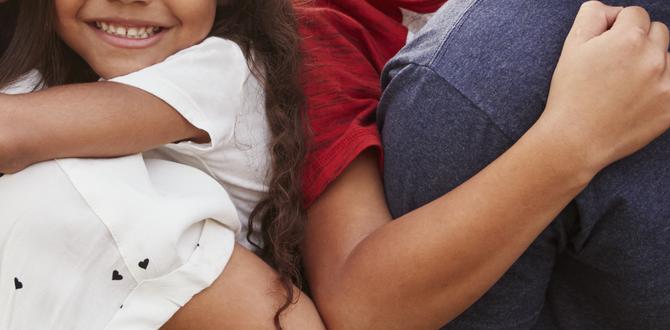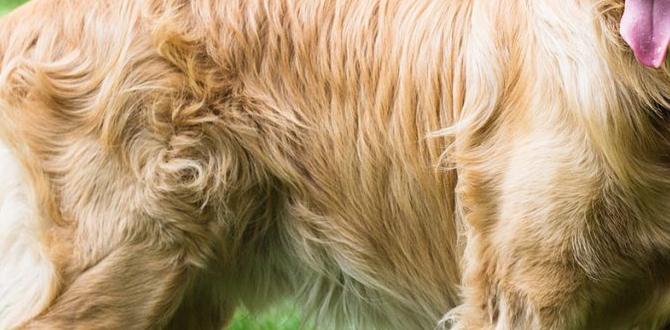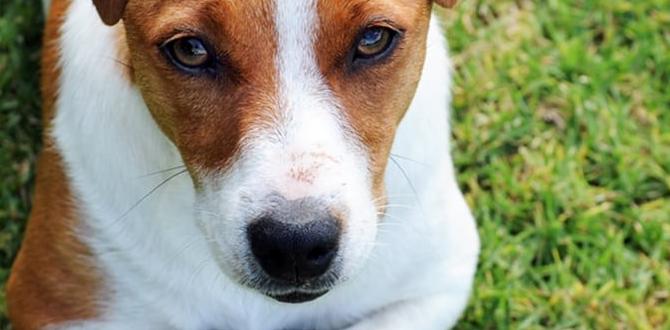Have you ever watched puppies play together? They tumble and roll, often playfully biting each other. But sometimes, this playful behavior turns serious. Puppies can show signs of dominance. Why does this happen? Understanding canine dominance issues in puppies can help you raise a happy and healthy dog.
When puppies show dominance, they sometimes growl or snap. This behavior is their way of trying to control playtime or protect their food. Do you know what causes this? Puppies might feel scared or want to be the leader. It’s important to know how to handle these situations. Let’s explore more about canine dominance issues in puppies.
Key Takeaways
- Dominance issues can start in puppyhood.
- Training helps with reducing dominance behaviors.
- Canine dominance issues in puppies need careful attention.
- Socialization can reduce dominance in dogs.
- Understanding puppy behavior is key to a happy pet.
Recognizing Canine Dominance in Puppies
Puppies are cute and playful, but sometimes they show signs of being bossy. Understanding canine dominance issues in puppies is important. Dominant puppies may growl or bite more than others. They might also try to control other dogs during playtime. They often want to win and be the leader. This behavior can cause problems if not managed early. Every puppy is different, so watch them closely to understand their behavior.
- Dominant puppies may growl a lot.
- They might control toys and food.
- They often want to lead playtime.
- Some puppies bite more than others.
- Dominance can cause fights between puppies.
- Watch puppies closely for any signs.
>
Helping your puppy learn healthy play habits is key. Encourage sharing and playing nicely with others. Spend more time training your puppy to follow commands. Positive reinforcement, like treats and praise, works well. This helps them learn what is acceptable behavior. Always be patient and consistent with your puppy. Over time, they will understand and follow the rules. They will grow into happy, well-behaved dogs.
Fun Fact or Stats: Did you know that puppies start learning about dominance at just three weeks old?
Why Puppies Show Dominant Behavior
Have you noticed a puppy acting like the boss? Puppies sometimes show dominant behavior because of natural instincts. In the wild, dogs needed to establish a leader to survive. This behavior can still appear in pet puppies. Dominance helps them feel secure and controls resources like food and toys. A dominant puppy might feel more confident. But this behavior can become a problem if not managed.
Being the leader helps the puppy feel safe and strong. Do you think your puppy is showing dominance? Watch for signs like growling, snapping, or trying to control the play. Understanding why puppies act this way is the first step to handling it. It helps to set clear boundaries and expectations. This way, they can learn the right way to behave.
How to Handle Dominant Puppies
If your puppy is acting dominant, don’t worry too much. With the right training, most puppies can learn better behavior. Start by teaching basic commands like “sit” and “stay.” Use positive reinforcement to reward good behavior. Avoid punishing your puppy. This can make things worse. Instead, focus on being calm and consistent. This approach helps your puppy learn to respect you as the leader.
Do you think you can handle a dominant puppy? It might take some time and patience. But with the right training, you can help your puppy learn to behave properly. Socializing your puppy with other dogs can also help. It teaches them how to act around others. Over time, they will learn to relax and play nicely with others.
The Role of Socialization in Puppy Behavior
Have you ever taken your puppy to a dog park? Socialization is crucial for puppies. It helps them learn how to interact with other dogs and people. Without socialization, canine dominance issues in puppies can grow. A well-socialized puppy is usually more confident and friendly. They are less likely to show dominant behavior. Introduce your puppy to new situations, people, and environments early on.
Socializing your puppy is fun and rewarding. Do you want your puppy to make new friends? Start by taking them to puppy classes or arranging playdates. This exposure helps them learn how to behave around different dogs. Socialization also teaches them how to handle new experiences. Over time, your puppy will become more relaxed and happy in new situations.
Training Tips for Dominant Puppies
Training is key when dealing with canine dominance issues in puppies. Start training as soon as you bring your puppy home. Teach them basic commands like “sit,” “stay,” and “come.” Use positive reinforcement like treats and praise. Avoid using harsh punishment. It can make your puppy fearful or aggressive. Consistent training helps your puppy understand what is expected of them.
- Start training early for the best results.
- Use treats to reward good behavior.
- Be consistent and patient with training.
- Teach basic commands like “sit” and “stay.”
- Avoid harsh punishments during training.
- Regular training helps puppies learn quickly.
Training should be a fun and positive experience for your puppy. Do you enjoy teaching your puppy new tricks? Make training a game by keeping sessions short and exciting. Your puppy will love learning new things. Training not only reduces dominance but also strengthens your bond. Over time, your puppy will become a well-behaved and happy family member.
Fun Fact or Stats: Puppies can start learning basic commands as early as eight weeks old!
Importance of Consistency in Training
Consistency is crucial when training your puppy. Are you consistent with your training methods? Puppies need clear and consistent rules to learn. If you change the rules, your puppy will get confused. Keep training sessions regular and use the same commands every time. This helps your puppy understand what you expect.
A consistent training routine helps your puppy feel secure. It gives them a sense of structure and predictability. With time, your puppy will learn to follow your lead. Consistency also helps reinforce positive behavior. It makes learning easier and faster for your puppy. Remember, patience and consistency are key to successful puppy training.
The Impact of Environment on Puppy Behavior
Your puppy’s environment plays a big role in their behavior. Have you set up a safe space for your puppy? A positive and nurturing environment helps reduce canine dominance issues in puppies. Puppies need a calm and comfortable space to relax and play. Make sure they have their own area with toys and a bed. A well-organized environment helps them feel secure.
- Ensure your puppy has a safe, quiet space.
- Provide them with toys and chew items.
- Keep their environment clean and organized.
- Avoid noisy or stressful surroundings.
- Introduce them to new places slowly.
- Create a routine for feeding and playtime.
Puppies can feel overwhelmed in a chaotic or stressful environment. Do you think your puppy is happy with their surroundings? Watch for signs of stress, like whining or hiding. Create a calm and positive space to help your puppy thrive. Over time, they will feel more secure and less likely to show dominant behavior.
Fun Fact or Stats: Dogs spend 12 to 14 hours a day sleeping. A comfy space is essential for your puppy’s rest.
Understanding Puppy Communication
Do you understand what your puppy is trying to tell you? Puppies communicate through body language and sounds. Understanding this communication is important for managing canine dominance issues in puppies. Watch for signs like barking, growling, or wagging their tail. Each signal tells you something about their feelings or needs.
| Behavior | Meaning |
|---|---|
| Wagging Tail | Happy or excited. |
| Growling | Feeling threatened or dominant. |
| Barking | Alert or wanting attention. |
| Whining | Feeling anxious or needs something. |
Understanding puppy communication helps you respond appropriately. Are you paying attention to your puppy’s signals? Listen to their sounds and watch their body language. This helps you understand their feelings and needs. By learning their communication style, you can manage their behavior better. This leads to a happier and more connected relationship with your puppy.
Fun Fact or Stats: Dogs have over 18 different ways to communicate with their tails!
Conclusion
Understanding canine dominance issues in puppies is important for raising a happy dog. Early training and socialization are key. Provide a safe and positive environment. Be patient and consistent with training. Listen to your puppy’s communication signals. This helps you manage dominance effectively. With love and care, your puppy can grow into a well-behaved dog.
FAQs
Question: Why is my puppy showing dominance?
Answer: Puppies show dominance due to natural instincts. They might feel scared or want to lead. Understanding canine dominance issues in puppies helps address the behavior. Provide training and socialization to manage dominance.
Question: How can I reduce dominance behavior in my puppy?
Answer: Consistent training and socialization help reduce dominance. Teach basic commands using positive reinforcement. Also, introduce your puppy to new environments and other dogs. This helps them learn to behave appropriately.
Question: What should I do if my puppy growls and snaps?
Answer: If your puppy growls and snaps, stay calm. Avoid harsh punishment. Instead, redirect their behavior and teach them correct actions. Understanding canine dominance issues in puppies can help manage this problem.
Question: Is it too late to train an older puppy?
Answer: It’s never too late to train a puppy. Start as soon as possible for best results. Older puppies may take longer to learn, but consistency and patience are key. Use positive reinforcement to encourage good behavior.
Question: How does socialization help with dominance?
Answer: Socialization teaches puppies how to interact with others. It reduces fear and builds confidence. This helps prevent canine dominance issues in puppies. Encourage play with other dogs and introduce new environments.
Question: Why is my puppy acting out suddenly?
Answer: Sudden behavior changes could be due to stress, fear, or confusion. Check their environment and routine for changes. Understanding their communication can help identify the problem. Be patient and provide comfort.
Meet Elyse Colburn, the devoted canine companion and storyteller behind the enchanting world of “Tales, Tails, and Adventures Unleashed.” A passionate dog enthusiast with a heart full of paw prints, Elyse Colburn shares heartwarming tales and insightful adventures, celebrating the joy, loyalty, and endless antics that make every dog a true hero. Join Elyse Colburn on this tail-wagging journey, where every post is a love letter to our four-legged friends.








